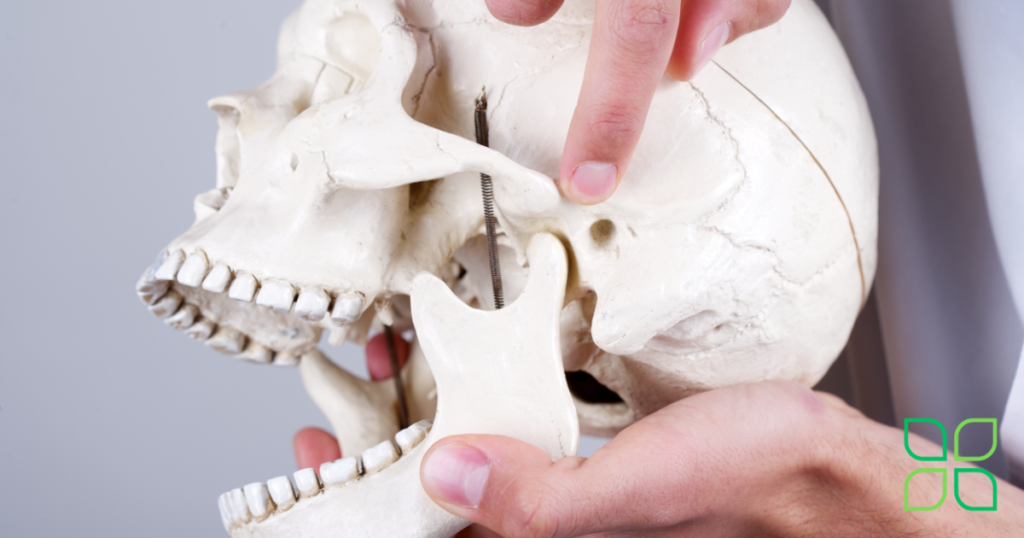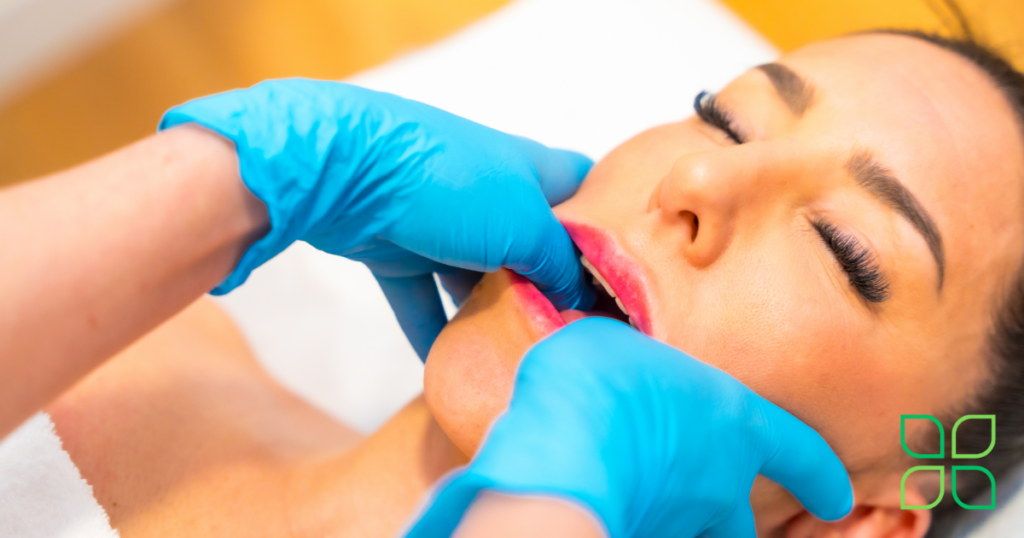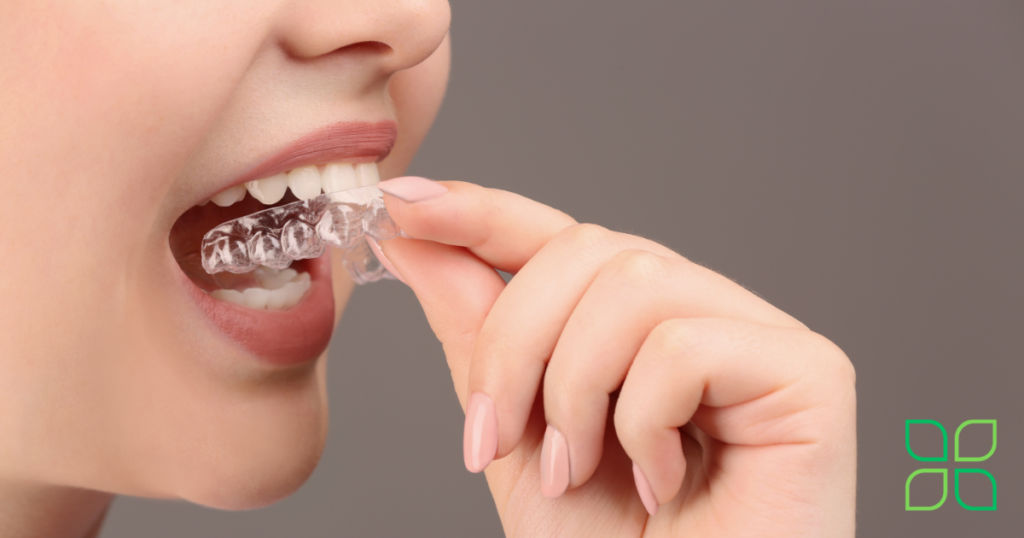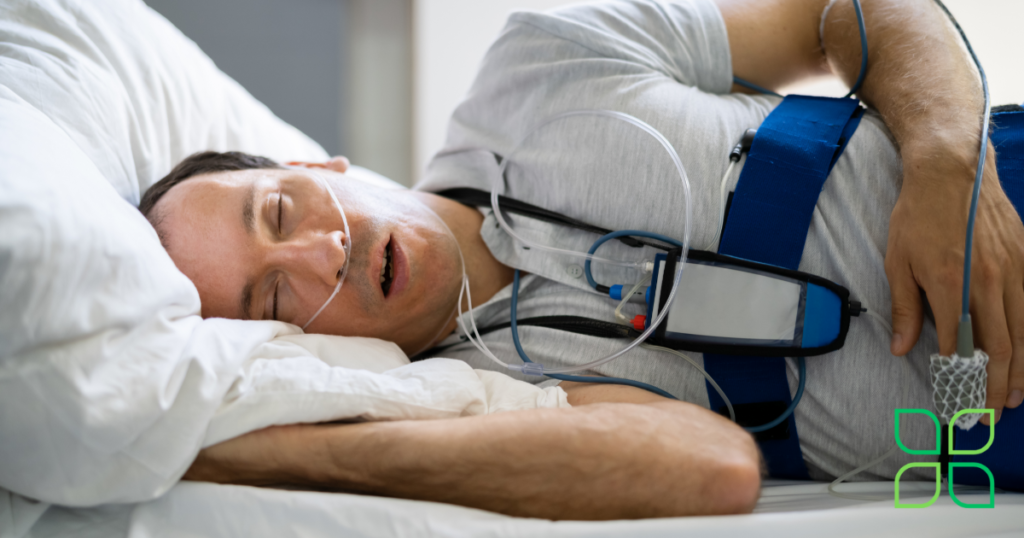
Causes and Treatments of Lockjaw: Tetanus Infection and TMJ Disorder Explored
Lockjaw, also known as trismus, can be caused by various factors, such as a tetanus infection or temporomandibular joint (TMJ) disorder. In this blog post, we will discuss the different causes of Lockjaw and some at-home treatments.
Lockjaw can refer to a tetanus infection or a jaw disorder related to TMJ issues. Let’s break down the two types of Lockjaw here.
Understanding and Treating Tetanus: Severe Symptoms and Urgent Medical Intervention Required
Tetanus lockjaw, also known as tetanus, is a medical condition caused by the infection of the bacterium Clostridium tetani. It is primarily characterized by widespread muscle stiffness, including the muscles of the jaw, neck, and limbs.
Patients with tetanus may also experience additional symptoms such as persistent headaches, elevated body temperature in the form of fever, fluctuations in heart rate, and changes in blood pressure. In severe cases, individuals may suffer from seizures, which can further exacerbate the already challenging physical symptoms.
It is crucial to understand that tetanus is a potentially life-threatening ailment primarily transmitted through wounds or injuries that become contaminated with C. tetani spores. These spores are commonly found in soil, dust, and animal feces. Once the spores enter the body, they can germinate and release toxins that affect the central nervous system, resulting in characteristic muscle stiffness and other associated symptoms.
Given the severity and potential complications of tetanus, prompt medical attention is paramount. Treatment generally involves a combination of wound care, such as cleaning and debridement, and administering the tetanus vaccine and tetanus immune globulin. Additionally, patients may require supportive care to manage symptoms and prevent the progression of the condition.
Managing Lockjaw and Temporomandibular Disorders (TMD): Symptom Management and Implications on Daily Life
On the other hand, Lockjaw can also be caused by TMJ disorders, which are often referred to as TMD. Temporomandibular disorder (TMD) is a condition that can have significant implications on an individual’s ability to move their temporomandibular joint disorder (TMJ), which is responsible for jaw movement. When someone experiences TMD, it can lead to restricted mobility in the TMJ and TMJ pain, making it a challenge to open the mouth thoroughly. This limitation can significantly impact daily life, mainly when eating, speaking, and even expressing emotions through facial expressions.

One of the most common symptoms of TMD is a popping or clicking sensation in the joint. This can occur when opening or closing the mouth and can be accompanied by pain. The pain can vary in intensity, ranging from mild discomfort to severe and persistent aches. It may be localized to the jaw joint or radiate to the surrounding areas up the side of the jaw, such as the temples, face, and neck.
Headaches and earaches are also frequently associated with TMD. The pain can be dull and throbbing, making concentrating or carrying out daily activities challenging. The headaches can be tension-type or migraines, further adding to the upheaval caused by this disorder. Earaches are another distressing symptom that can occur due to the close proximity of the temporomandibular joint to the ear. It can feel like a deep ache or sharp pain, leading to further discomfort and frustration.
Additionally, individuals suffering from TMD often experience a limited range of motion in their jaw. They may find it difficult to open their mouth wide enough to eat certain foods or even to yawn comfortably. This reduced mobility can cause feelings of insecurity or self-consciousness, mainly when social situations involve eating or talking. It can be a source of frustration and affect one’s overall quality of life.
Lockjaw caused by TMD is typically due to functional issues such as trauma or inflammation in the jaw. First, it is recommended to get medical advice from a dentist. A physical examination will help determine if you have TMJ disorder. Your dentist may palpate your joint as you open and close your mouth to observe any irregularities. In some cases, your dentist may be able to put the joint back into place, or they may refer you to an oral surgeon. Before attempting any treatment, your dentist may need to take a Panoramic X-ray or a full mouth 3D scan to assess the anatomy of your TMJ and surrounding structures.

Effective Home Remedies for Treating TMJ and Alleviating Lockjaw
In the meantime, the great news is that there are several home remedies can be incorporated to manage TMD and alleviate Lockjaw.
Here are 12 great home remedies to attack this issue:
1. Following an anti-inflammatory diet: Consuming foods rich in omega-3 fats, enzymes, and magnesium can help reduce inflammation and relieve stress on the TMJ joint. Include wild-caught fish, flax seeds, chia seeds, hemp seeds, walnuts, vegetables, fruits, dark chocolate, pumpkin seeds, red meat, spinach, and avocados in your diet. Consider taking magnesium and omega-3 supplements as well.
2. Improving posture: Forward head posture can put pressure on the upper bone in your neck, which is connected to the jaw. To improve posture, engage in exercises that open up your back and shoulders, such as reverse flies and rows. Visiting a chiropractor can also help adjust your jaw and improve posture.
3. Targeted exercises: One of the leading causes of TMJ is over-chewing on one side of the mouth. One of the best exercises for this is to stand in front of a mirror and slowly open and close your jaw. If your jaw shifts to one side, it may be due to over-chewing on that side. Use a clothespin to bite down on the weaker side of your jaw for five seconds, releasing for five seconds. Repeat this exercise five times, three times a day.
4. Consuming bone broth: Bone broth contains amino acids, proline, glycine, glucosamine, chondroitin, and hyaluronic acid, which can help lubricate and strengthen the connective tissue of the jaw. Drink bone broth daily or use bone broth protein powder in smoothies.
5. Use a mouth guard: Invest in a bite splint or occlusal guard to ease muscle tension and protect your teeth. These helpful devices can relieve muscle tension and prevent teeth grinding or clenching. They act as a protective barrier between your upper and lower teeth, helping to alleviate the strain on your jaw joints. By wearing a bite splint or occlusal guard, you can enjoy improved comfort and safeguard your teeth from potential damage caused by TMJ.

6. Warm and cold packs: Use Alternate warm and cold compresses every 20 minutes to manage your TMJ. This straightforward method can provide much-needed relief and promote relaxation for your jaw muscles. The warm compress helps to soothe any tension or discomfort. At the same time, the cold temperature of an ice pack reduces swelling and inflammation. By incorporating this alternating regimen into your daily routine, you can take control of your TMJ symptoms casually and conveniently.
7. Reducing emotional stress: Emotional stress can cause clenching of the jaw while sleeping. Taking a healing bath with essential oils of lavender, peppermint, and Epsom salt can help reduce stress levels and tension, leading to less clenching or grinding of the jaw during sleep.
8. Using natural pain relievers: Peppermint or wintergreen essential oil can be used to make a homemade muscle rub. Mix peppermint oil with cayenne pepper or black pepper oil and coconut oil, then massage the jaw and upper neck area for one minute. Turmeric, cumin, ginger, and bromelain are other natural anti-inflammatory herbs that relieve pain.
9. Massage: Massage your TMJ and surrounding muscles throughout the day. Applying some pressure and using a circular motion can help reduce tension and promote relaxation. Not only will this self-massage feel great, but it can also relieve any jaw-related issues you may be experiencing.
10. Stop bad habits: Eliminate habits like nail biting or gum chewing, as they can potentially exacerbate jaw issues and worsen TMJ symptoms.
11. Get braces: Consider getting braces to correct tooth misalignment and improve your bite. Not only can they help straighten your teeth and enhance the aesthetic of your smile, but they can also make a significant difference in alleviating any discomfort associated with TMJ (temporomandibular joint) problems. Braces apply gentle pressure to gradually shift your teeth into their proper positions, resulting in a more aligned bite. If you’re tired of dealing with jaw pain or other TMJ symptoms, considering braces is a worthwhile solution!
12. Sleep apnea screening: Get screened for sleep apnea, as it can be related to TMD. Sleep apnea has been found to be linked to temporomandibular disorder (TMD). It could be worth looking into if you’ve been experiencing jaw pain or discomfort.

Unlocking Relief: Treatment Options for Lockjaw and TMJ Disorders
The underlying cause needs to be identified for long-term treatment of Lockjaw. Depending on the diagnosis, treatment options may include physical therapy to improve movement and range of motion, myofunctional therapy to address airway and tongue positioning, orthodontic treatment to correct misalignment, speech therapy or eating therapy for long-term side effects, injectables like Botox to relax the muscles, or surgical reconstruction in cases of internal disc or bone damage.
It is essential to schedule an appointment with your dentist to receive a proper diagnosis and treatment plan for Lockjaw. If you still have unanswered questions, consulting with a myofunctional therapist can be beneficial, as they can evaluate your airway and tongue positioning, which often relate to jaw issues.
In conclusion, Lockjaw can be caused by a tetanus infection or TMJ disorder. Incorporating these natural remedies into your routine could offer the best way to experience relief from TMJ symptoms. Remember to consult with a healthcare provider before starting any new treatment. Seeking professional help and following the recommended treatments can help alleviate Lockjaw and improve TMJ issues.
Have you tried any of these home remedies before?
